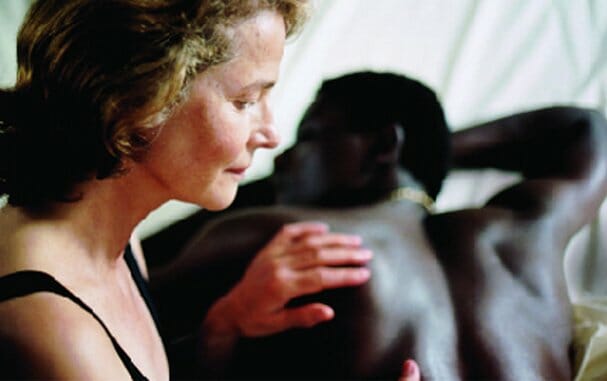
Director: Laurent Cantet
Writers: Robin Campillo, Laurent Cantet
Cinematography: Pierre Milon
Starring: Charlotte Rampling, Karen Young, Louise Portal, Ménothy Cesar
Studio Info: 108 mins.
When Heading South begins, in the ’70s, three white women have individually traveled to Haiti looking for more than just a flirtatious glance from the young local men. A film about the jealousies and self-discoveries of privileged women on a holiday in paradise might seem like an odd choice for director Laurent Cantet, more like a Lifetime movie-of-the-week compared to the nuanced fare he’s given us before.
In the past, Cantet has shown a great deal of interest in something far more mundane than sun and skin: the daily routine of the working stiff and the interplay of business and family life. In his previous film, the remarkable Time Out, a man seems unable to admit to his wife, or himself, that he’s quit his job. So he maintains the charade by driving around all day, calling home periodically and strolling through random office buildings where workers conduct their business behind glass walls. With his suit, briefcase and cell phone he blends right in, except that he’s on the wrong side of the glass. It’s an odd film that pays particular attention to the patterns and appearances of the white-collar world, and to a man who has slipped just outside of it.
The beaches of Haiti don’t seem at first to be a useful setting for exploring the workplace, but it’s when Cantet’s fascinations begin to surface in Heading South that the film rises above its soapy plot. The young Haitian man who commands ladies’ attention, Legba, may be an object to them, but he has a life of his own, and Cantet, unsurprisingly, reminds us that dalliance with vacationers is a job, a chore, something Legba has fallen into because he’s young, handsome and poor, and because economic forces have made Haiti a destination for people looking for someone with just those qualities.
The film leaves the main story briefly to follow Legba (though not very far), and the concerns of the women seem petty and naive when the context broadens slightly. Even confident and sophisticated Ellen, played by the always reliable and supremely convincing Charlotte Rampling, is brought down to size by the wider picture. Following the money is critical in the larger context, just as it is in the work of the Dardenne brothers, whose latest film, l’enfant, includes a lengthy scene where paper money can be heard rustling offscreen. Cantet’s movies similarly operate with full knowledge of what makes the world turn, and the world of Heading South is an economic machine with blatant inequalities across nearly every divide: race, income and even gender. What has driven these women to Haiti to flaunt their possessiveness if not the men back home who they speak of resentfully?
It’s a complicated dynamic, and it probably has too many moving parts for Cantet to examine with satisfying precision. When some of the characters deliver awkward monologues to the camera, the film seems to have done what the title warned us it might, gone south, by spending far too much time listening to the whining and bickering of shallow people. But notably absent from these monologues is Legba. It’s an absence Cantet surely expects us to question. What Heading South says through careful omission or brief allusion is often more interesting than what it says on the clunky surface.